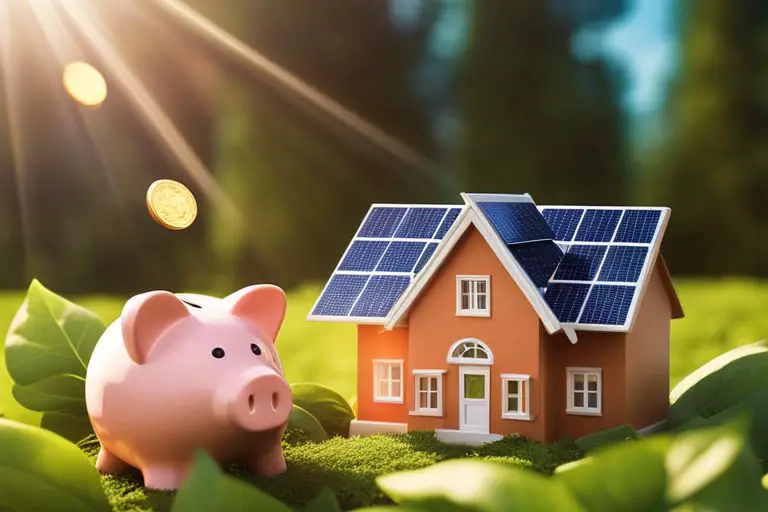Embark on a journey to unravel the mysteries of solar energy and its incredible potential to save you money. Discover the innovative technology behind solar panels and how they convert sunlight into electricity for your home. Learn about the significant savings on your energy bills and the positive impact on the environment when you harness the power of the sun. Let’s delve into the details of how solar energy works and how it can be a game-changer for your finances and the planet.
Key Takeaways:
- Solar panels: Convert sunlight into electricity using photovoltaic cells. They can generate renewable energy to power your home or business.
- Net metering: Allows you to earn credits for the excess energy your solar panels produce. These credits can be used to offset your electricity bill during times when your panels are not producing enough energy.
- Financial savings: By investing in solar energy, you can significantly reduce or even eliminate your electricity bills over time. Additionally, some governments offer incentives or tax credits to further reduce the upfront cost of installing solar panels.

Understanding Solar Energy
If you are interested in adopting solar energy for your home or business, it is crucial to understand how this renewable energy source works. Solar energy is derived from the sun’s radiation and can be harnessed through the use of solar panels to produce electricity. By harnessing the power of the sun, you can not only reduce your carbon footprint but also save money on your energy bills in the long run.
The Science of Solar Panels
Solar panels are made up of photovoltaic cells that convert sunlight into electricity through the photovoltaic effect. When sunlight hits the solar panels, the photons in the light knock the electrons in the cells loose, allowing them to flow and generate an electric current. This direct current (DC) is then converted into alternating current (AC) by an inverter, making it compatible with the electrical grid in your home or business.
The Process from Sunlight to Electricity
With solar panels installed on your rooftop, the process from sunlight to electricity begins. The photovoltaic cells in the solar panels absorb sunlight and generate an electric current, which is then converted into usable electricity through an inverter. This electricity can be used to power your home or business, offsetting your reliance on traditional fossil fuels and reducing your overall energy costs.
Installing Solar Energy Systems
After making the decision to switch to solar energy, the next step is to install a solar energy system on your property. This process involves careful planning, positioning, and installation to ensure maximum efficiency and savings in the long run.
Types of Solar Energy Systems
When it comes to installing solar energy systems, there are primarily two types to consider: solar photovoltaic (PV) systems and solar thermal systems. Solar PV systems convert sunlight into electricity, while solar thermal systems harness the sun’s heat for thermal energy. Each system has its unique benefits and applications, depending on your energy needs and goals.
| Solar Photovoltaic (PV) Systems | Solar Thermal Systems |
| Convert sunlight into electricity | Harness the sun’s heat for thermal energy |
| Suitable for residential and commercial rooftops | Used for water heating, space heating, and cooling |
| Require minimal maintenance | Can provide both heat and electricity |
| Long lifespan of 25-30 years | Highly efficient in sunny climates |
| Generate electricity even on cloudy days | Reduce energy bills significantly |
Recognizing the differences between these two types of solar energy systems is crucial in determining which one is the best fit for your property and energy needs.
The Installation Process
For a successful installation of a solar energy system, it is essential to work with a reputable solar energy company that has experience in designing and installing systems. The process typically begins with a site assessment to evaluate the property’s orientation to the sun, shading, and available space for the system.
Installation of solar panels on rooftops or ground-mounted systems involves mounting the panels securely, connecting them to an inverter for electricity conversion, and integrating the system with the existing electrical infrastructure of the property. Proper installation is crucial for optimal performance and safety.
Installation of a solar energy system is a significant investment that can lead to long-term savings and environmental benefits. It is important to follow the manufacturer’s guidelines for maintenance and regularly monitor the system’s performance to ensure it continues to operate efficiently.
Economic Benefits of Solar Energy
Saving on Energy Bills
On average, solar energy can save homeowners thousands of dollars over the lifespan of their system. By harnessing the power of the sun to generate electricity, solar panels can significantly reduce or even eliminate your monthly electricity bills. This is particularly beneficial as traditional energy costs continue to rise, making solar power an attractive and cost-effective alternative.
Additionally, excess electricity generated by the solar panels can be fed back into the grid through net metering programs, allowing homeowners to earn credits or even money from their utility company. This not only helps offset costs during times when the sun isn’t shining, but it also contributes to a more sustainable and efficient energy system.
Incentives and Rebates
One of the major economic benefits of installing a solar energy system is the availability of incentives and rebates offered by federal, state, and local governments. These incentives can help offset the upfront costs of purchasing and installing solar panels, making renewable energy more accessible to a wider range of homeowners.
Additionally, many utility companies offer rebates or performance-based incentives for installing solar energy systems. These can include cash rebates, tax credits, or even grants to help reduce the overall cost of going solar. By taking advantage of these financial incentives, homeowners can see a quicker return on investment and enjoy greater long-term savings.
Economic experts predict that as solar technology continues to advance and prices decrease, the economic benefits of solar energy will only become more pronounced. It is clear that investing in solar power is not only a smart financial decision for homeowners, but also a crucial step towards a more sustainable and resilient energy future.
Environmental Impact and Future Outlook
Not only does solar energy help you save money on your electricity bills, but it also has a significant positive impact on the environment. Solar energy is a clean, renewable energy source that produces no greenhouse gas emissions or air pollutants. By generating electricity from the sun’s rays, solar power helps reduce our dependence on fossil fuels, which are the primary drivers of climate change.
Solar Energy and Carbon Footprint Reduction
Solar energy plays a crucial role in reducing carbon emissions and combating climate change. By harnessing the power of the sun to generate electricity, solar panels help to decrease our reliance on fossil fuels such as coal, oil, and natural gas. This transition to clean energy sources is essential for lowering our carbon footprint and creating a more sustainable future for generations to come.
Solar energy systems have become increasingly efficient and cost-effective, making them a viable option for homeowners, businesses, and governments looking to reduce their environmental impact. Investing in solar power not only saves money in the long run but also contributes to a cleaner, greener planet for all.
The Future of Solar Energy Technology
On the horizon, it is clear that the future of solar energy technology is bright. Innovations in solar panel design, energy storage solutions, and grid integration are driving the industry forward at a rapid pace. This progress is essential for expanding the reach of solar power and maximizing its potential as a primary energy source.
To wrap up
On the whole, understanding how solar energy works and how it can save you money is crucial in making informed decisions when it comes to renewable energy sources for your home or business. By harnessing the power of sunlight through solar panels, you can lower your electricity bills, reduce your carbon footprint, and potentially even earn money through solar incentives. Investing in solar energy not only benefits your wallet but also the environment, making it a smart and sustainable choice for the future. Make the switch to solar energy today and start reaping the benefits for years to come.
FAQ
Q: How does solar energy work?
A: Solar energy works by capturing sunlight through solar panels, which contain photovoltaic cells that convert sunlight into electricity. When sunlight hits the solar panels, the photons in the sunlight are absorbed by the cells, creating an electric current. This electricity can then be used to power your home or business.
Q: How can solar energy save you money?
A: Solar energy can save you money in several ways. First, by generating your own electricity from the sun, you can reduce or even eliminate your monthly electricity bills. Additionally, many governments offer incentives such as tax credits or rebates for installing solar panels, helping to offset the initial cost of the system. Finally, solar panels can increase the value of your home, providing a return on your investment if you decide to sell.
Q: What are the environmental benefits of using solar energy?
A: Using solar energy has numerous environmental benefits. By generating electricity from the sun, you are reducing the demand for fossil fuels, which are a major source of greenhouse gas emissions and air pollution. Solar energy is a clean, renewable source of power that does not produce harmful emissions or contribute to climate change. By choosing solar energy, you are helping to create a more sustainable and eco-friendly future for generations to come.



